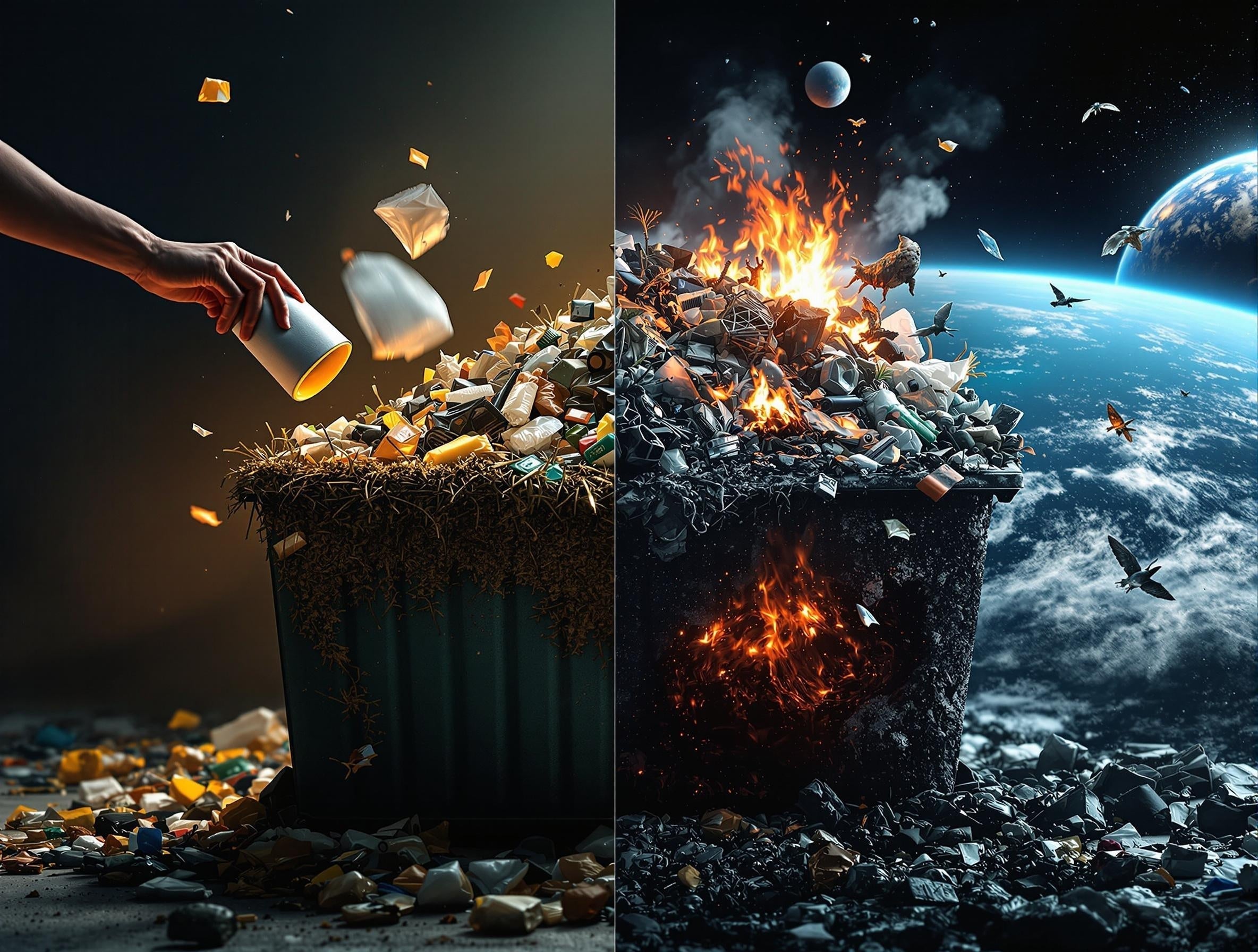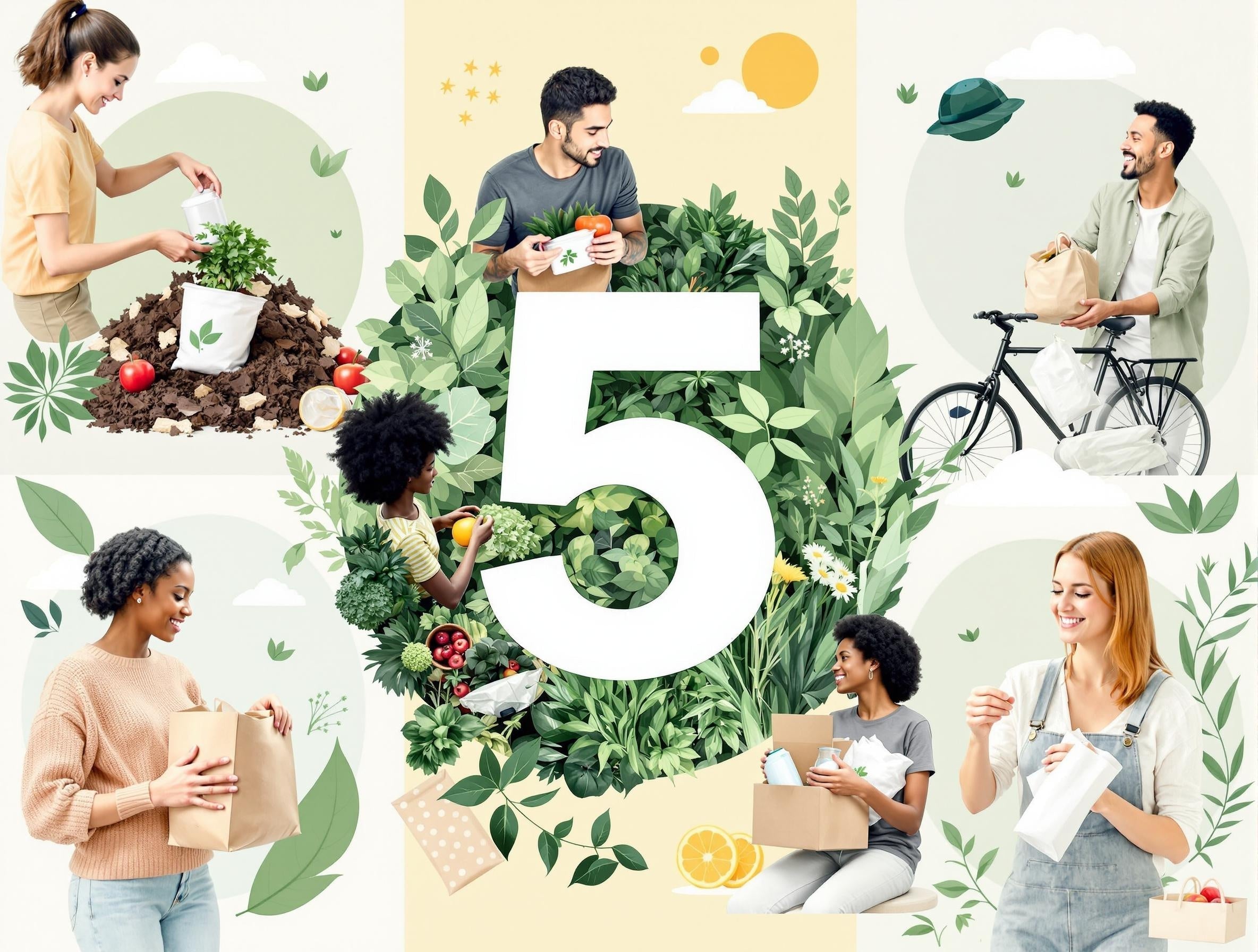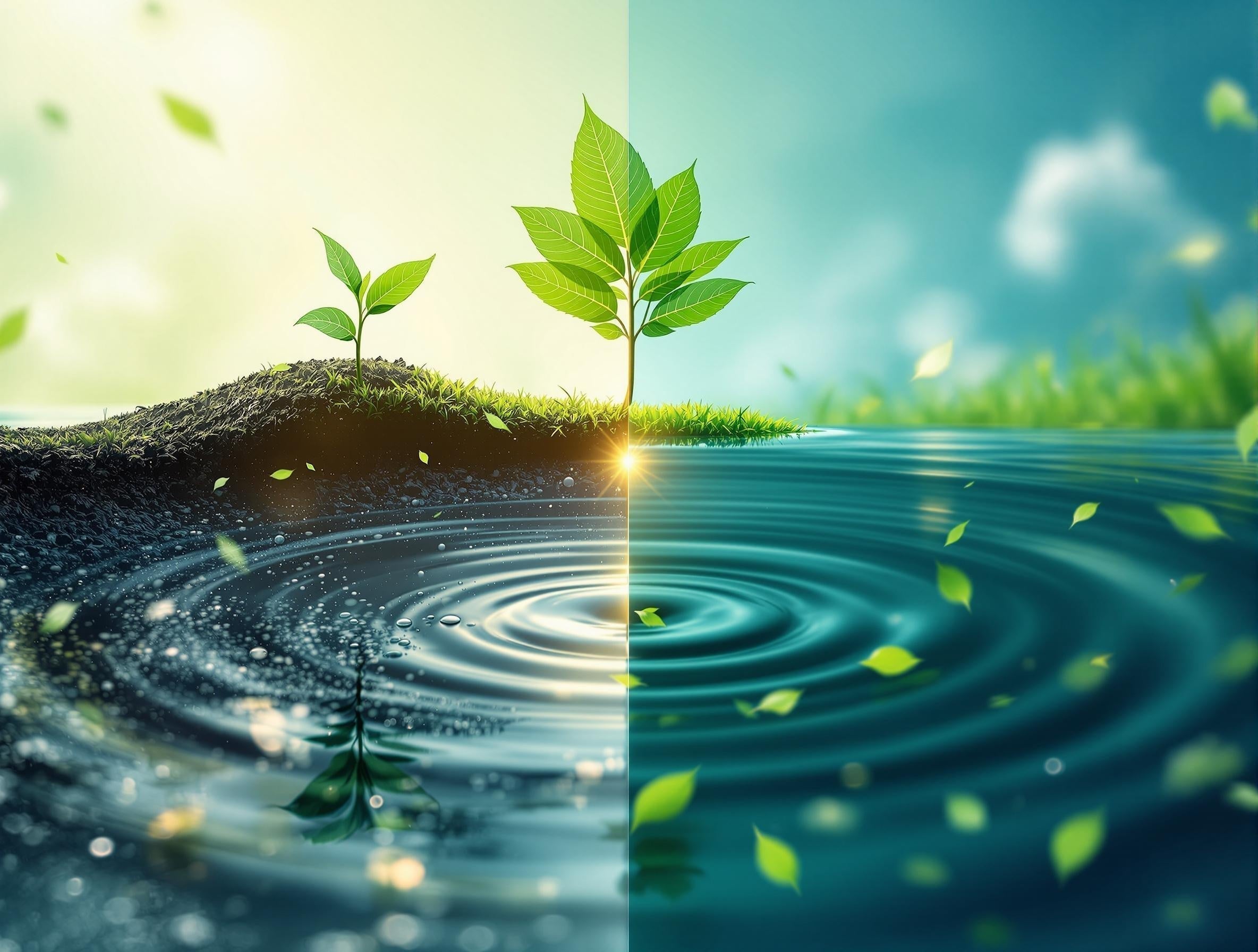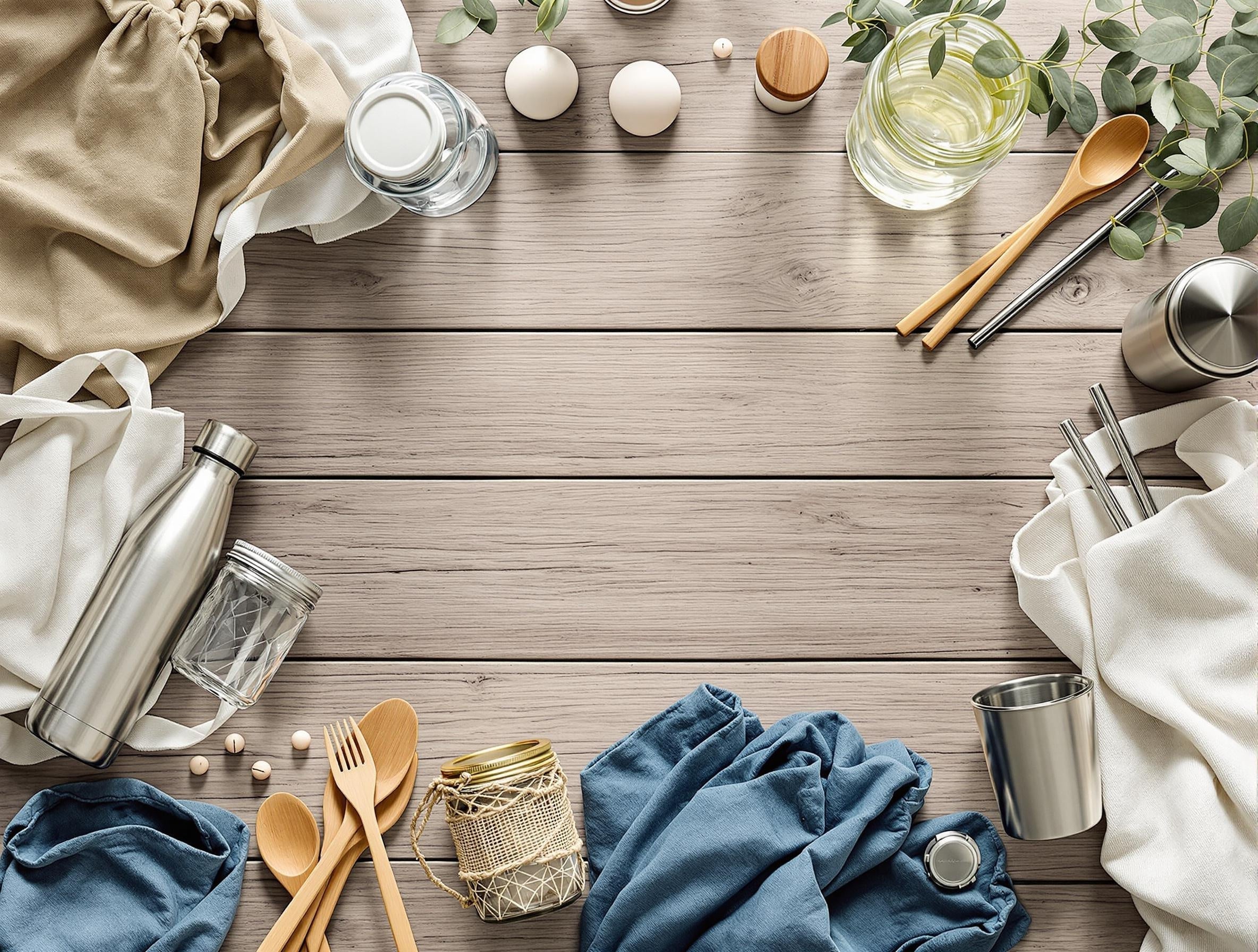Blog Post: How to Build an Eco Routine That Works for Your Lifestyle

Published on July 16th, 2025, | 5 min read
We throw things away every day: food wrappers, shampoo bottles, old receipts, coffee cups. But have you ever stopped to wonder where "away" really is?
The truth is, there’s no such thing as away. Every item we discard begins a new journey after it leaves our hands, one that can either help or harm the planet, depending on how we dispose of it and what systems are (or aren’t) in place to deal with it.
At mimro, we believe that understanding the afterlife of our waste is the first step toward more mindful consumption. So, let’s break it down: what happens after you toss it?
🗑️ Landfill: The Final Stop for Most Waste
Globally, over 2 billion tons of waste are generated each year, and much of it ends up in landfills. These sites are designed to store, not break down, trash. Without oxygen, even organic waste like food and paper decomposes very slowly, and releases methane, a potent greenhouse gas that accelerates climate change.
Even “biodegradable” plastics won’t break down properly in landfills. Instead, they sit for decades, leaching chemicals or breaking into microplastics that can pollute nearby soil and water.
🔁 Recycling: Not a Perfect System
Many of us feel good tossing items into the recycling bin, but the reality is more complicated.
-
Only about 9% of all plastic ever made has been successfully recycled.
-
Contamination (like greasy pizza boxes or mixed materials) often leads to entire batches being trashed.
-
Items like plastic bags, bottle caps, or multilayer packaging (e.g., chip bags) are often non-recyclable through curbside programs.
Even when materials are recycled, the process requires significant energy, and plastics typically downcycle, meaning they can only be reused once or twice before becoming waste again.
♻️ Composting: Nature’s Recycling
Composting is the natural breakdown of organic materials, like food scraps, paper, and yard waste, into nutrient-rich soil. But unless you’re doing it at home or have access to a municipal composting program, most compostable waste ends up in landfills.
Compostable packaging (often labeled PLA or “plant-based”) also requires high-heat, industrial composting facilities, not a backyard bin, to break down properly.
🚯 The Litter Problem
Some items, like single-use plastics, cigarette butts, or fast-food containers, never make it to the bin at all. They’re littered, swept into drains, and eventually flow into rivers and oceans, where they harm marine life and disrupt ecosystems.
Every year, 11 million metric tons of plastic enter the ocean. If nothing changes, that number could triple by 2040.
🌿 So… What Can You Do?
Waste doesn’t disappear, but you can take steps to reduce what you toss and rethink how you dispose of it. Start here:
-
Refuse and reduce: Say no to items you don’t need (like straws, freebies, or excess packaging).
-
Reuse and repair: Extend the life of products by choosing durable options and fixing what’s broken.
-
Recycle right: Learn your local recycling rules and clean your recyclables.
-
Compost when possible: Look for community programs or start a bin at home.
-
Choose better products: Support brands that offer compostable, refillable, or plastic-free alternatives.
At mimro, we make it easier to shop for products that don’t end up in landfills. From reusable kitchen goods to biodegradable bathroom swaps, every item is chosen to lighten your load on the planet.
💚 What you toss matters. So does what you choose next.






























































































